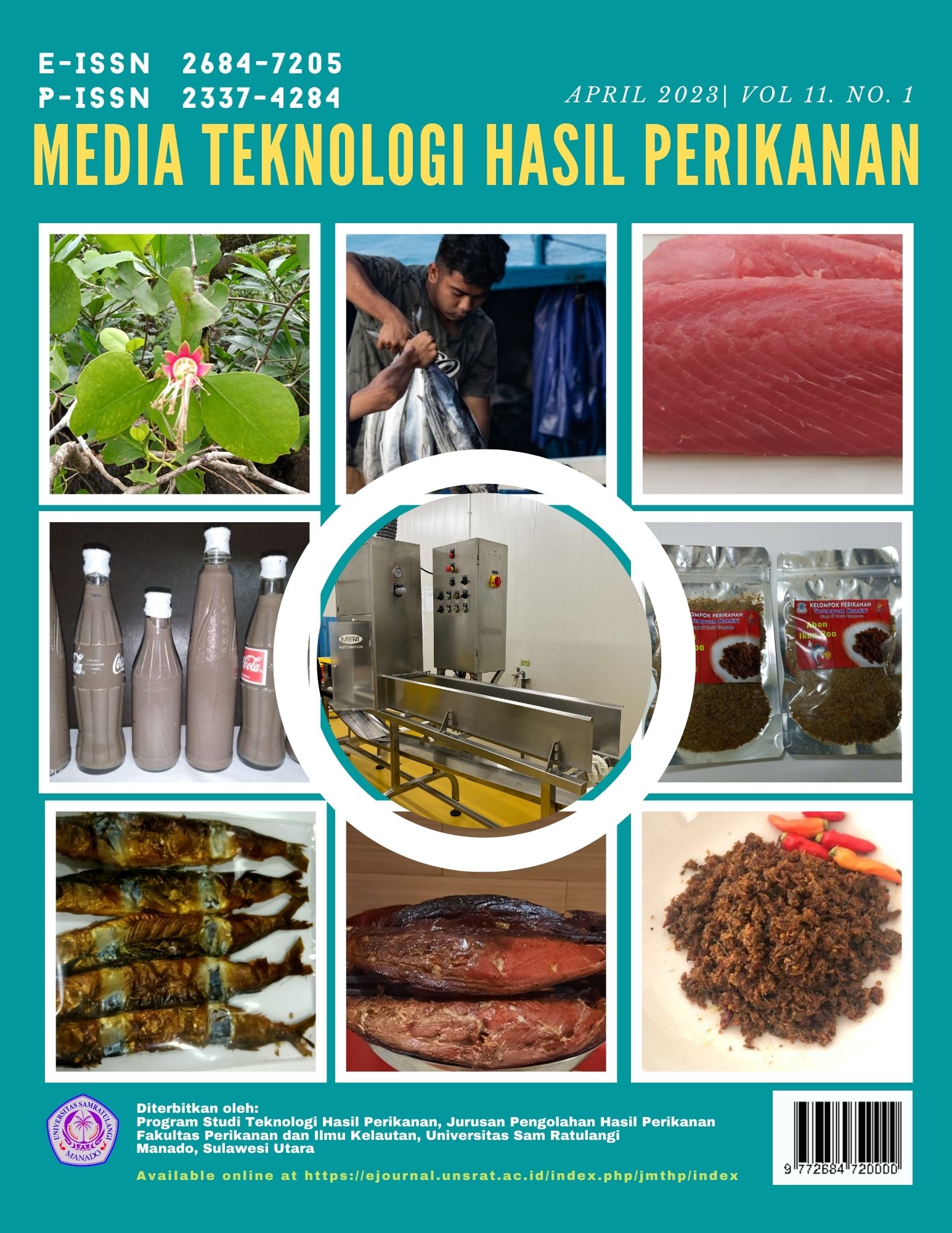Efek Penambahan Ekstrak Daun Tagalolo (Ficus Septica Burm. F) terhadap Kadar Histamin dan Total Bakteri Ikan Cakalang (Katsuwonus pelamis L)
DOI:
https://doi.org/10.35800/mthp.11.1.2023.54138Abstract
Histamine is one of the important parameters in determining the quality of fish quality, especially in fishery products that will be exported. This study aims to determine the effect of adding tagalolo leaf water extract on histamine levels and total plate counts in fresh skipjack (Katsuwonus pelamis L). The results showed that tagalolo leaves have the potential to slow down the rate of histamine and bacterial development in fish
Keyword: skipjack, histamine, tagalolo leaves, total plate count
Histamin merupakan salah satu parameter penting dalam penentuan kualitas mutu ikan terutama pada produk perikanan yang akan diekspor. Penelitian ini bertujuan untuk mengetahui efek penambahan ekstrak air daun tagalolo terhadap kadar histamin dan angka lempeng total pada ikan cakalang (Katsuwonus pelamis L) segar. Hasil penelitian menunjukkan bahwa daun tagalolo memiliki potensi untuk dapat memperlambat laju perkembangan histamin dan bakteri pada ikan.
Kata kunci: ikan, histamine, daun tagalolo, angka lempeng total
Downloads
Published
How to Cite
Issue
Section
License
Copyright (c) 2023 Media Teknologi Hasil Perikanan

This work is licensed under a Creative Commons Attribution-ShareAlike 4.0 International License.
Authors who publish with this journal agree to the following terms:
- Authors retain copyright and grant the journal right of first publication with the work simultaneously licensed under a Creative Commons Attribution License that allows others to share the work with an acknowledgement of the work's authorship and initial publication in this journal.
- Authors are able to enter into separate, additional contractual arrangements for the non-exclusive distribution of the journal's published version of the work (e.g., post it to an institutional repository or publish it in a book), with an acknowledgement of its initial publication in this journal.
- Authors are permitted and encouraged to post their work online (e.g., in institutional repositories or on their website) prior to and during the submission process, as it can lead to productive exchanges, as well as earlier and greater citation of published work (See The Effect of Open Access).

.png)
 https://orcid.org/0000-0002-2390-3953
https://orcid.org/0000-0002-2390-3953




